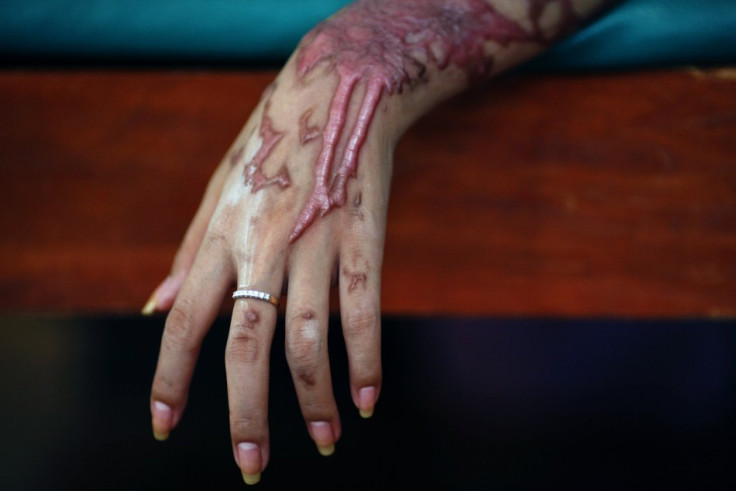Pakistan Passes Bill to Check Acid Attack Crimes, Victims Get Respite

The Pakistan Senate has unanimously passed two bills that impose strict punishments on those who attack women with acid.
The Acid Control and Acid Crime Prevention Bill calls for a prison term ranging from 14 years to life and levies fines of up to $11,160 (Rs. 1 million) for the perpetrator of the crime, The Express Tribune reported. The Acid Survivors Foundation of Pakistan, which provides help and support to victims of acid violence, called the move the first step won.
This is milestone indeed and from now on, acid and burn attack will be officially recognized as a crime. Punishment will be increased from minimum 14 years to life term imprisonment. For the survivors who were present today in the Senate, democracy is not a myth anymore, they got justice, the organization said on its official site on Monday.
The Bangladesh chapter of the ASF states that the victims are usually young women who are attacked for refusing to accept marriage proposals, denying dowry and refusing to have sex. Robbery, family feuds, land and property disputes are some of the other reasons for acid attacks on women, a violent act often motivated by jealousy or revenge.
Acid attack survivors are left with lifelong injuries, scars, disfigured faces and sometimes disability and blindness. Such women struggle to survive in a society as normal beings, according to the Law Commission of India, which says the country’s criminal laws relating to acid-related crimes are “insufficient to deal with the phenomenon of acid attacks.”
There has been a rise in instances of acid attacks in Cambodia, but after years of indifference, authorities drafted legislation to restrict acid sales and to punish perpetrators last year.
The crime of throwing acid on women is particularly common in South and Southeast Asian countries. The number of such incidents in these countries is much higher and, tragically, on the rise, when compared to statistics from other countries.
Pakistan's passage of these bills suggests that women of other Asian countries can look forward to similar reforms.
This reflects the great effort and struggle by women lawmakers of Pakistan which will be praised by international community, said Prime Minister Yousaf Raza Gilani, welcoming the move.
© Copyright IBTimes 2024. All rights reserved.











